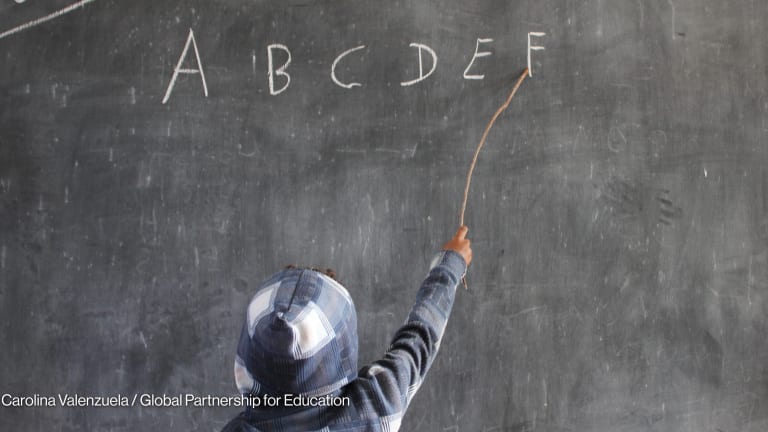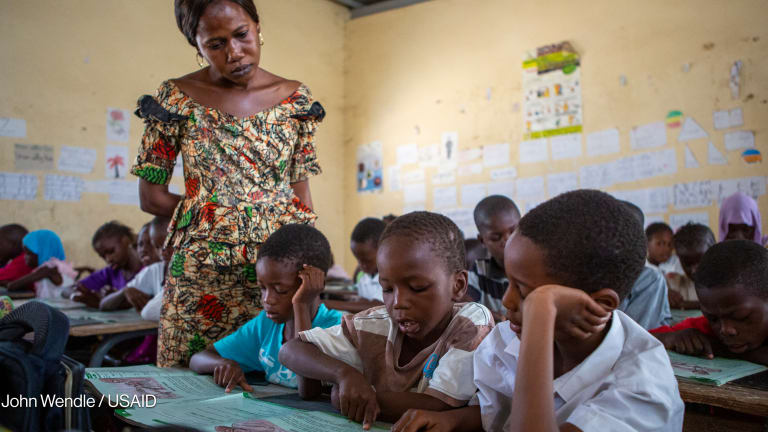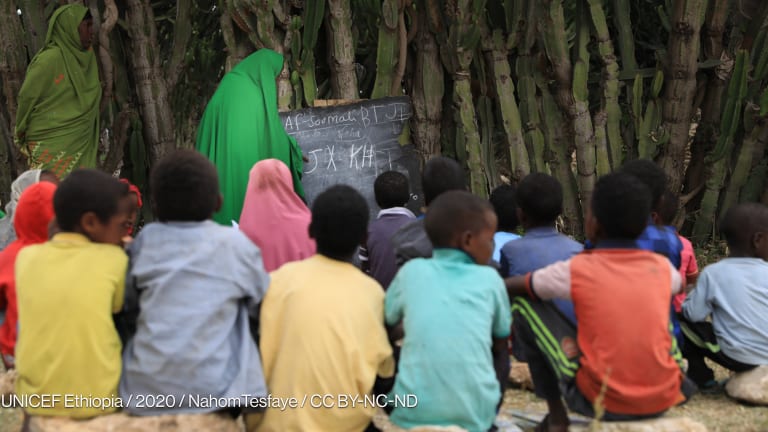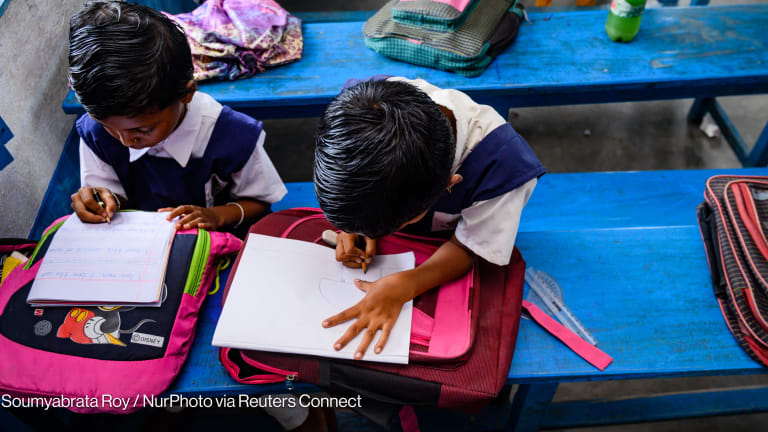Julia Gillard's quest to ensure quality education for all
Australia's former prime minister believes there is no better way to reduce global poverty and inequality than by investing in education. How is she helping achieve this through the global partnership she chairs?
For Julia Gillard, the long road toward the creation of the post-2015 development has provided two things: recognition of the gaps and shortfalls of the Millennium Development Goals, and an opportunity to do better moving forward. And this includes being better — collectively — at addressing education. In an exclusive interview with Devex, Australia’s former prime minister said despite the milestones achieved through the MDGs, education goals remain far from ideal. More than 58 million children of school age do not receive primary education, and about 250 million children who do aren’t getting quality education. “There’s no better investment than education, if we want to combat poverty and inequality around the world,” Gillard said. “If we educate boys and girls, we not only make a difference in lifting people out of poverty, [but] we also make a difference to national development.” Gillard, who once served as Australia’s education minister, added that education gives people the “opportunity to have better lives” and be more productive members of society, who then could generate more wealth for their countries. In a speech she delivered last month during a lecture at Vrije Universiteit in Brussels, Gillard emphasized the need to not just finish defining the next set of development goals but to also get them right. For education, the “hope [is] to lift [the] vision for children to go beyond primary school and lift the quality [of education]” through a renewed — and improved — commitment, and the corresponding financing to help realize this vision. Firm commitment from developing countries Gillard however stressed that there is no shortage of desire from stakeholders, especially from the developing countries themselves. The former prime minister now heads the Washington, D.C.-based Global Partnership for Education, which helps partners coordinate efforts to ensure education aid is effective and aligned with each country’s education goals and strategies. At GPE’s last replenishment pledging conference in Brussels last June, donors committed about 60 percent of the partnership’s $3.5 billion funding goal, promising to provide more than $2.1 billion. GPE’s 60 developing country members, however, exceeded the target set for them, which is to increase their own education expenditure to a combined $16 billion over the next four years. These countries went $10 billion beyond that target, vowing to increase their education budgets to a combined $26 billion during the period. This suggests these developing country members are truly committed to providing universal quality education. GPE provides financing to help countries improve their education system and targets, among other things, but only if there is evidence that they are working toward allocating 20 percent of their national budgets to education. For Gillard, this commitment of “leveraging more [money] within countries” is important for genuine change to happen. But this is just one of three criteria to win grant funding or technical assistance from GPE. Need for comprehensive plan, proper data The GPE chair said there must first be a comprehensive education plan endorsed by the development community in that country. This is because the partnership wants to ensure the “whole schooling system is proper and it’s going to work” and it is “going to deliver quality education for children,” which would be better realized if the plan has the full support of relevant stakeholders. The plan doesn’t have to be perfect, Gillard stressed, as GPE can provide technical assistance to help refine the strategy. Data that would allow proper planning, budgeting, implementation and monitoring of projects needs to be available as well. While Gillard admits this can be a problem in fragile and conflict-affected countries, efforts are being made to address the data gap in these areas, including by encouraging national governments to improve data collection. “It’s impossible to properly plan and keep improving your education system if you don’t have the key information to know what’s going on,” she said. “What it is all about at the end of the day is making sure that the best possible efforts are made to educate children, boys and girls.” Gillard however noted that raising the quality of education entails more than just having better teachers and classrooms that are conducive to learning. An inclusive process is needed as well. “If a child has a disability or they are from an ethnically disadvantaged family or in a rural area, these things make a difference to whether or not the child can go to school,” she concluded, adding that they seek to “address these inequalities … as we look toward the post-2015 development agenda.” Check out more insights and analysis for global development leaders like you, and sign up as an Executive Member to receive the information you need for your organization to thrive.
For Julia Gillard, the long road toward the creation of the post-2015 development has provided two things: recognition of the gaps and shortfalls of the Millennium Development Goals, and an opportunity to do better moving forward.
And this includes being better — collectively — at addressing education.
In an exclusive interview with Devex, Australia’s former prime minister said despite the milestones achieved through the MDGs, education goals remain far from ideal. More than 58 million children of school age do not receive primary education, and about 250 million children who do aren’t getting quality education.
This story is forDevex Promembers
Unlock this story now with a 15-day free trial of Devex Pro.
With a Devex Pro subscription you'll get access to deeper analysis and exclusive insights from our reporters and analysts.
Start my free trialRequest a group subscription Printing articles to share with others is a breach of our terms and conditions and copyright policy. Please use the sharing options on the left side of the article. Devex Pro members may share up to 10 articles per month using the Pro share tool ( ).
Lean Alfred Santos is a former Devex development reporter focusing on the development community in Asia-Pacific, including major players such as the Asian Development Bank and the Asian Infrastructure Investment Bank. He previously covered Philippine and international business and economic news, sports and politics.








